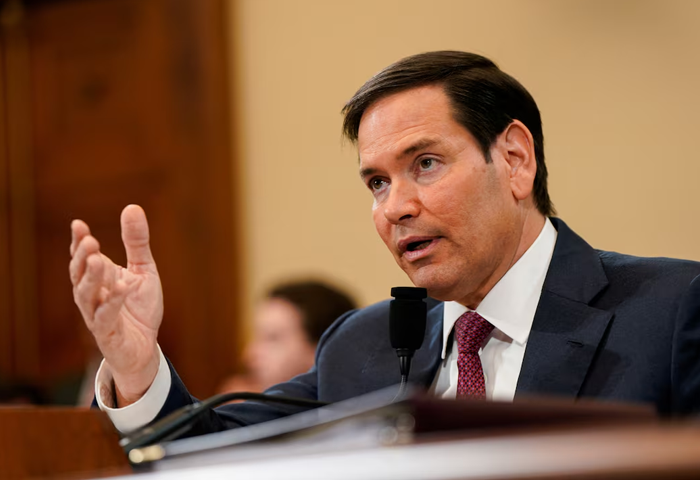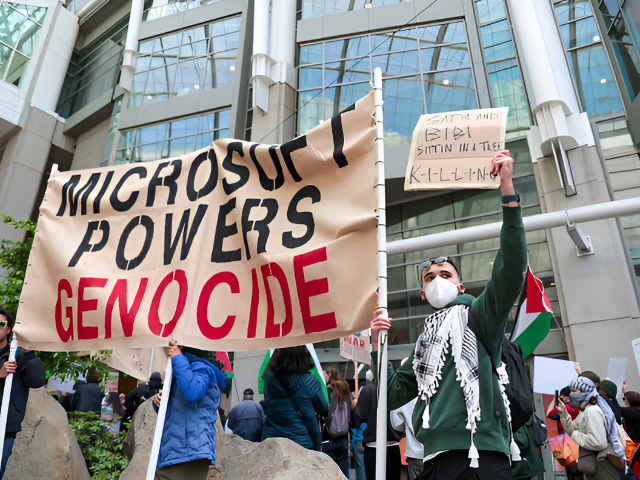The US will impose visa bans on foreign nationals it deems to be censoring Americans, Secretary of State Marco Rubio said on Wednesday, and he suggested the new policy could target officials regulating US tech companies.
Rubio did not name any specific instances of censorship. But US tech companies and the Trump administration have challenged US allies in Europe, alleging censorship of social media platforms. Restricting officials from visiting the US appeared to be an escalation by Washington.
Rubio said in a statement that a new visa restriction policy would apply to foreign nationals responsible for censorship of protected expression in the US. He said it was unacceptable for foreign officials to issue or threaten arrest warrants for social media posts made on US soil.
Read more: US halts new student visa appointments amid social media vetting
“It is similarly unacceptable for foreign officials to demand that American tech platforms adopt global content moderation policies or engage in censorship activity that reaches beyond their authority and into the United States,” Rubio said.
Some foreign officials have taken “flagrant censorship actions against US tech companies and US citizens and residents when they have no authority to do so,” Rubio said.
US social media companies like Facebook and Instagram parent Meta (META.O), opens new tab have said an EU content moderation law, the Digital Services Act, amounts to censorship of their platforms. The Trump-appointed chairman of the US Federal Communications Commission in March warned the EU Digital Services Act excessively restricts freedom of expression.
EU officials have defended the law, which is meant to make the online environment safer and fairer by compelling tech giants to do more to tackle illegal content, including hate speech and child sexual abuse material.
The dispute comes as the EU seeks a trade deal with Washington to avoid President Donald Trump’s threatened 50% tariffs on European imports. Rubio’s announcement came just before he met with German Foreign Minister Johann Wadephul in Washington.
Europe: ‘A hotbed of digital censorship’
Trump officials have repeatedly weighed in on European politics to denounce what they see as suppression of right-wing politicians, including in Romania, Germany and France, accusing European authorities of censoring views like criticism of immigration in the name of countering disinformation.
In April, Rubio shut down a State Department office that had sought to counter foreign disinformation, accusing it of censorship and wasting US taxpayer money.
In a social media post on Wednesday, Rubio added, “Whether in Latin America, Europe, or elsewhere, the days of passive treatment for those who work to undermine the rights of Americans are over.”
Rubio did not name specific countries or individuals that would be targeted. Brazil has clashed with the platform X, owned by Trump ally Elon Musk, over compliance with orders to take down accounts accused of spreading misinformation.
The Brazilian government is waiting to fully understand who could be targeted by the ban and what its scope would be, a government source told Reuters on condition of anonymity.
The Trump administration has repeatedly called out European nations for supposed censorship of online content.
Vice President JD Vance denounced content moderation while in Paris in February, calling it “authoritarian censorship.”
Rubio has said threats to free speech are an attack on shared values that are important to US-European relationship and said the issue was being raised in diplomacy with both the EU and Britain.
Officials from the State Department’s Bureau of Democracy, Human Rights and Labor are separately visiting EU members France and Ireland this week to press those governments on freedom of expression, a State Department official told Reuters, requesting anonymity.
An op-ed, opens new tab by Samuel Samson, senior advisor for that bureau, accused Britain and Germany of censoring online speech and said the EU Digital Services Act was “used to silence dissident voices through Orwellian content moderation.” He also cited Britain’s jailing of two anti-abortion activists.
“Far from strengthening democratic principles, Europe has devolved into a hotbed of digital censorship, mass migration, restrictions on religious freedom, and numerous other assaults on democratic self-governance,” Samson wrote.



